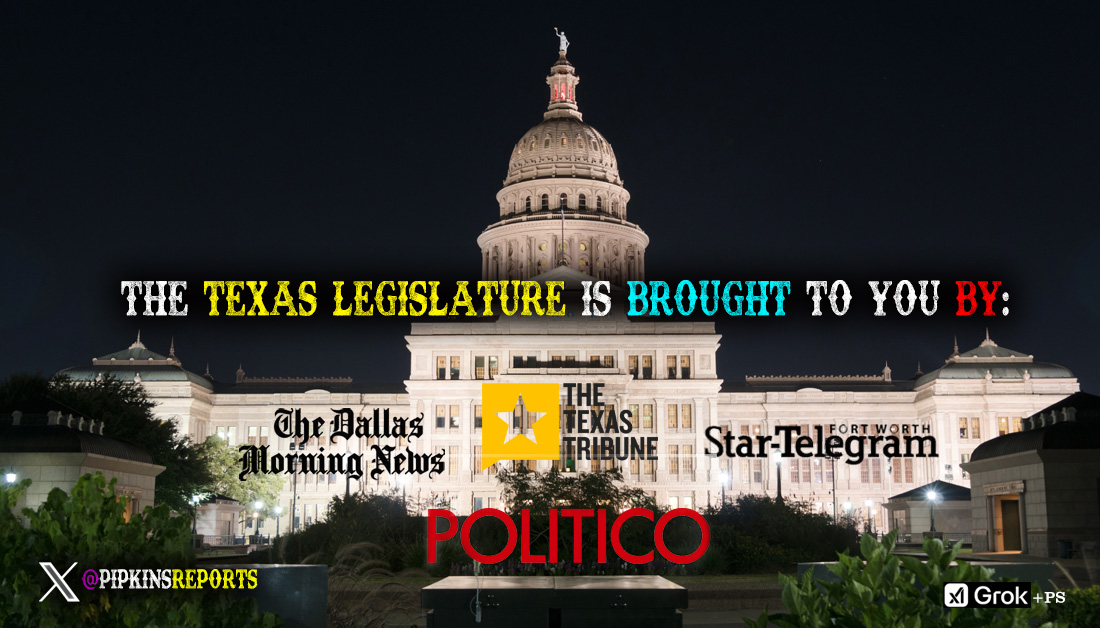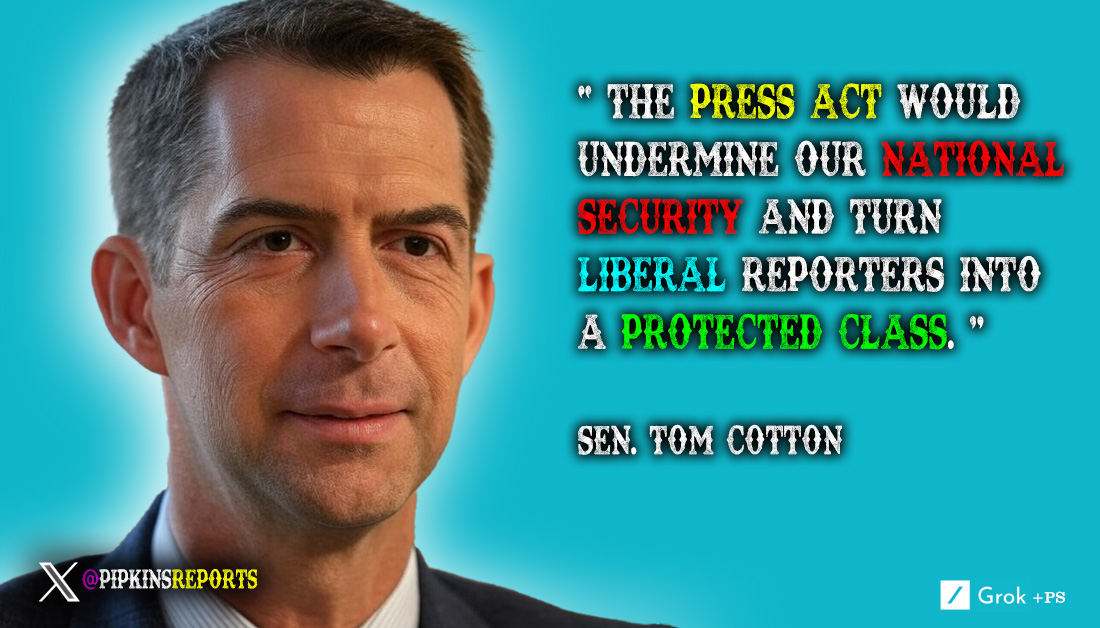Uncategorized
Rep. Jasmine Crockett Doubles Down Amidst Controversy

Dallas, TX – In a heated and divisive political climate, Rep. Jasmine Crockett [D-TX-30] has reignited controversy with a fiery post on X.com, doubling down on her stance regarding H.R.8081, the “Denying Infinite Security and Government Resources Allocated toward Convicted and Extremely Dishonorable Former Protectees Act.” This bill, co-sponsored by Crockett, aims to strip former President Donald Trump of his Secret Service protection, following his conviction on felony charges.
Crockett’s Explosive Response
Following an assassination attempt on Trump during a rally in Pennsylvania, Crockett took to X.com to defend her position and challenge her critics. Her post, marked by overt racism and sexism, has drawn sharp rebuke from across the political spectrum. Crockett’s inflammatory remarks included accusations of “white privilege” and a stark dismissal of her opponents as “losers” and “illogical.”
“Oh the evil & illogical who don’t even serve on my level believe they have sway or authority over me (insert white privilege),” Crockett wrote. She continued, “While I’ve been out of the country on official business, these losers have been looking for Twitter clout.”
Crockett’s post not only defended her stance on the bill but also questioned why taxpayers should foot the bill for Secret Service protection for a convicted felon. “As a sitting member of congress we don’t even get secret service protection so why should taxpayers foot the bill for someone who a jury of his/her peers has deemed guilty of a felony or in this case 34 of ‘em, if they are sentenced to time.”
Oh the evil & illogical who don’t even serve on my level believe they have sway or authority over me (insert white privilege).
— Jasmine Crockett (@JasmineForUS) July 17, 2024
While I’ve been out of the country on official business, these losers have been looking for Twitter clout.
But I’ll be gracious because I’m sure half… https://t.co/cDtEQ5hzte
A Brazen Attack on Trump and Republicans
Crockett’s comments went further, questioning the masculinity of Trump and his supporters. She compared Trump’s situation to that of Martha Stewart, suggesting that Trump’s supporters were implying he was weaker than Stewart. “If Martha Stewart could survive, I’m not sure why y’all are so scared that your Orange Savior couldn’t or is it that you want to admit that women are stronger than many of you, including him?” she quipped.
Her rhetoric didn’t stop there. Crockett boldly challenged her critics to try to unseat her, confident that her constituents would stand by her. “The next time you think it’s a great idea to talk to me; don’t. And… If y’all think your ideas or opinions matter to my district, go work against me to get me kicked out of office… I dare you to go knock doors in my district and cry a river to my constituents and see how it works out for you 😘.”
A Divisive Figure
Crockett’s post has been widely condemned as not only defensive but deeply divisive. Critics accuse her of using overtly racist and sexist language to attack her opponents, while also displaying a palpable hatred for Donald Trump.
Townhall.com highlighted Crockett’s remarks, pointing out the inflammatory nature of her statements. “Crockett also found a way to make yet another issue about ‘white privilege’ and her own importance,” noted the publication. This rhetoric, coupled with her dismissal of her critics, suggests that Crockett may be attempting to position herself as a victim in this scenario.
Political Fallout
The political fallout from Crockett’s comments has been swift. Texas Republicans, already calling for her resignation over the bill, have intensified their demands. The assassination attempt on Trump has only heightened the urgency and emotion surrounding this issue.
Rep. Bennie Thompson (D-MS), who introduced the bill, also faced backlash for his stance. While Thompson responded more diplomatically, Crockett’s aggressive post has drawn significantly more attention and criticism.
Trump’s Legal Battles
The bill in question, introduced on April 19, came just before Trump’s conviction on 34 felony counts in New York. The legal battles surrounding Trump have been a focal point of national attention, and the recent U.S. Supreme Court ruling on presidential immunity in the Trump v. United States case has further complicated the situation. Trump’s sentencing, initially scheduled for July 11, has been delayed to September 18, with many believing his conviction will be overturned on appeal.
Independent Candidate Ken Ashby
In the midst of this controversy, Independent candidate Ken Ashby is gaining traction as he challenges Crockett in the upcoming election. With no Republican candidate in District 30, Ashby has positioned himself as the primary conservative alternative. He has capitalized on the controversy surrounding Crockett, criticizing her judgment and her divisive rhetoric.
Ashby released a statement condemning Crockett’s remarks, emphasizing the need for unity and respect in political discourse. “This bill is a dangerous precedent. We must protect all our Presidents, past and present, to uphold the dignity of the office and ensure national security,” Ashby stated.
A Community Divided
Crockett’s district, encompassing parts of Dallas and surrounding areas, remains divided. While some constituents support her strong stance and outspoken nature, others are dismayed by her comments and the potential implications of the DISGRACED Former Protectees Act.
As the political drama unfolds, Rep. Jasmine Crockett remains defiant in the face of mounting criticism. Her recent post on X.com has only deepened the controversy surrounding her co-sponsorship of H.R.8081 and her stance on Trump’s Secret Service protection. With the upcoming election and a formidable opponent in Ken Ashby, Crockett’s political future hangs in the balance. The voters of Texas’ 30th District will ultimately decide whether they stand by Crockett’s divisive rhetoric or seek a new direction in their representation.
The outcome of this race will not only impact North Texas but also reflect the broader national divisions and the challenges facing American politics today.

Uncategorized
Texas Taxpayers Are Funding Left-Wing Media—And Paying for Their Own Political Marginalization

Austin, TX – In a bombshell revelation, recent investigations by the Texas Liberty Journal have uncovered that Texas taxpayers are unwittingly funding left-wing media outlets—organizations that regularly churn out stories opposing the conservative values most Texans hold dear. This misuse of taxpayer dollars echoes the waste, fraud, and abuse exposed by Elon Musk’s Department of Government Expenditure (DOGE) team in their audit of USAID, but this time, the scandal hits much closer to home.
Follow the Money: How Texas Taxpayers Are Funding Leftist Journalism
According to payment records analyzed from the Texas state comptroller’s office, the Texas House of Representatives and Senate have spent at least $22,760 of taxpayer money on the Texas Tribune since 2020. However, when factoring in expenditures from various state agencies—including the Texas Military Department, the Department of Motor Vehicles, and the Department of Criminal Justice—the total public funding for the Texas Tribune balloons to $342,850.
The spending spree doesn’t stop there. The state has also shoveled a staggering $428,096 into the Dallas Morning News, another publication known for its left-leaning slant. Texas Monthly, infamous for its hit pieces targeting conservatives, received nearly $200,000 of taxpayer money during the same period. Politico, a nationally recognized progressive mouthpiece, has raked in over $253,000 from Texas government agencies.
In total, a jaw-dropping $1,636,836 of taxpayer funds have been funneled into just the top nine media organizations in Texas under the guise of “grants, advertising, subscriptions, printing, and other communication services.“
Political Indoctrination on the Public’s Dime
The irony is hard to ignore: Texans—overwhelmingly conservative—are paying for the very media outlets that routinely attack their values. Publications like the Texas Tribune and Texas Monthly have long been criticized for their one-sided reporting, often promoting liberal policies, demonizing conservative legislators, and giving platforms to progressive activists pushing for policies like open borders, gun control, and the expansion of government programs.
Despite this, taxpayer dollars continue to flow into these publications, giving them a financial advantage over independent and conservative media outlets that don’t enjoy the same government patronage.
Echoes of the USAID Scandal: Media Money Laundering?
The revelations uncovered by the Texas Liberty Journal bear a striking resemblance to the corruption uncovered by Elon Musk’s DOGE team during their audit of USAID. The federal agency had been caught funneling taxpayer money into left-wing media outlets under the guise of “subscriptions.” Major players like Politico were falsely accused of receiving millions in USAID funds, but the real scandal was that American taxpayers were being forced to subsidize media organizations in a way that compromised journalistic independence.
In Texas, the pattern is similar. While state officials claim that these expenditures are for “advertising” or “subscriptions,” the result is the same: a select group of media outlets receive a steady stream of taxpayer money while pushing narratives that serve the interests of the political left.
Government Manipulation Through Media Funding
This funding scheme raises serious ethical and constitutional concerns. By directing taxpayer money to specific media organizations, the state government is effectively picking winners and losers in the journalism industry. This flies in the face of the principles of a free press, which is supposed to operate independently of government influence.
Even more troubling, this practice creates a perverse incentive for media outlets to align their reporting with the interests of the government agencies that fund them. Rather than holding those in power accountable, these publications become dependent on government contracts, making them less likely to scrutinize corruption or wasteful spending within the very institutions that sustain them.
The Need for Reform
Conservative lawmakers in Texas must act swiftly to put an end to this misuse of taxpayer funds. Transparency and accountability measures should be implemented to ensure that government agencies are not funneling money into politically biased media outlets under misleading pretenses.
A simple solution would be a legislative ban on state-funded advertising and subscriptions to media organizations with a clear political bias. At the very least, a full public accounting of all taxpayer money spent on media should be made readily available, so that Texans know exactly where their hard-earned money is going.
Conclusion
Texas conservatives are facing an uphill battle—not only against a media landscape dominated by leftist narratives but also against their own government, which is using taxpayer dollars to prop up these outlets. This revelation should serve as a wake-up call to every Texan who values free speech, journalistic integrity, and fiscal responsibility.
Elon Musk’s DOGE team exposed federal-level media funding corruption. Now, Texans must demand that their own state government put an end to this backdoor subsidization of left-wing propaganda. The fight for Texas values starts with ensuring that taxpayer money isn’t being used to undermine them.
Uncategorized
Freedom of the Press Suffers Major Setback as Senate Rejects Key Bill

PRESS Act Dies in the Senate: A Win for National Security or a Blow to Freedom?
Washinton D.C. – In a move that highlights the growing tension between transparency and national security, the Republican-led House passed H.R. 4250—the “Protect Reporters from Exploitative State Spying Act” (PRESS Act)—only to have it quietly die in the Senate. While framed as a victory for journalistic freedom, the bill’s passage—and its subsequent demise—raises questions about motives, unintended consequences, and the troubling lack of accountability among lawmakers.
The PRESS Act aimed to protect journalists from being compelled to disclose confidential sources, shielding them from governmental overreach that could jeopardize press freedom. This legislation gained bipartisan support in the House, passing through a voice vote that notably obscured individual lawmakers’ positions. Among its co-sponsors was the late Rep. Sheila Jackson Lee. H.R. 4250 was touted as a necessary shield for journalists at a time when press freedoms are under assault. The bill’s provisions prohibited the federal government from forcing journalists to reveal their sources, offering protections against subpoenas or other legal maneuvers aimed at extracting information.
Supporters argued that such protections are vital in an era of unprecedented political polarization. Conservative journalists and whistleblowers have increasingly faced scrutiny and even prosecution from federal agencies. By codifying source protections, proponents claimed the PRESS Act would create a firewall between a journalist’s work and government interference.
But while the bill addressed legitimate concerns, its broad language opened the door to potential abuse. Critics warned that the PRESS Act could inadvertently provide cover for those seeking to exploit anonymity for nefarious purposes. Bad actors—both inside and outside the government—could weaponize the protections to avoid accountability. Furthermore, national security experts raised alarms that the bill’s vague definitions could hinder intelligence operations, particularly in cases involving leaks that threaten national safety.
Senate Silence and the Texas Connection
Despite its passage in the House, the PRESS Act met a quiet demise in the Senate, where it failed to gain traction. Senator Tom Cotton of Arkansas played a key role in blocking the bill. Cotton, citing concerns over national security, stated, “The PRESS Act would undermine our national security and turn liberal reporters into a protected class. No American citizen should be afforded the privileges provided in this bill, least of all the media.” He further added, “The press badge doesn’t make you better than the rest of America or put you above the law.”
Last month, President-elect Donald Trump urged Republicans to “KILL” the PRESS Act, a call echoed by conservative lawmakers who viewed the legislation as an overreach. Senate Majority Leader Chuck Schumer criticized this stance, writing on X, “This bill would protect journalists against overreaching government surveillance. It would ensure reporters can’t be legally required to disclose sources or research files or hand over data held by phone and internet companies.”
Cotton’s actions marked the second time he stymied the PRESS Act, having first blocked a vote on the bill back in December 2022. Critics of the Senate’s inaction point to the bill’s bipartisan origins, emphasizing that its support spanned ideological divides. However, the silence surrounding the bill’s failure is perhaps more damning than its defeat.
The House’s decision to pass the bill via voice vote ensures there is no record of which representatives supported or opposed it. This lack of transparency makes it impossible for Texans—or any Americans—to hold their elected officials accountable.
A Double-Edged Sword
The PRESS Act exemplifies the challenge of crafting legislation that balances liberty with security. On one hand, the bill addressed a clear and present danger to press freedom. Journalists—particularly those covering controversial or politically sensitive topics—face increasing risks from a government that appears more interested in silencing dissent than fostering accountability.
However, the bill’s broad protections risked creating loopholes for misuse. By shielding all journalists, the PRESS Act could inadvertently protect bad actors who use journalistic credentials as a shield for unethical or illegal behavior. Additionally, the lack of clear definitions within the bill raised concerns about its potential to undermine legitimate government investigations.
These competing priorities—protecting the press while safeguarding national security—underscore the difficulty of legislative reform in a polarized political climate. The PRESS Act’s failure reflects not just partisan gridlock but also a deeper unwillingness among lawmakers to confront the complexities of modern governance.
A Betrayal of Public Trust
The Senate’s quiet burial of the PRESS Act is a stark reminder of the growing disconnect between Washington and the American people. While the bill’s intentions were noble, its flaws demanded honest debate and rigorous scrutiny. Instead, lawmakers opted for obfuscation, leaving constituents with more questions than answers.
For Texans, the lack of transparency is particularly galling. The voice vote in the House ensures there is no accountability for representatives who may have supported a flawed bill. Meanwhile, the Senate’s inaction reflects a broader trend of legislative lethargy, where controversial issues are avoided rather than addressed.
As the dust settles, the PRESS Act serves as a cautionary tale about the perils of hasty legislation and the consequences of political cowardice. For the press, the fight for freedom is far from over. For the public, the demand for accountability has never been more urgent. And for lawmakers, the message is clear: the American people deserve better than silence and subterfuge.
Uncategorized
Democrats in Turmoil as Timeline for Replacing Sheila Jackson Lee Looms

The unexpected death of U.S. Representative Sheila Jackson Lee has thrown the Texas Democratic Party into a whirlwind of activity. The longtime congresswoman, who served Texas’ 18th Congressional District for nearly three decades, succumbed to pancreatic cancer on July 19, 2024. Her passing has left a significant void in Houston’s political landscape and prompted an urgent search for her replacement on the November ballot.
The Clock is Ticking
Under Texas law, the Harris County Democratic Party has until 5 p.m. on August 26 to nominate a new candidate. The process involves the Harris County Democratic Party’s executive committee, comprising approximately 130 precinct chairs. These chairs, representing various districts within Harris County, will select a candidate to run against the Republican contender, Lana Centonze.
Potential candidates must present their positions and priorities to the precinct chairs. Despite the urgency, the process remains public and transparent, reflecting what party lawyer Chad Dunn describes as a “very democratic process.” This level of transparency is crucial, given the high stakes and limited timeframe.
The Special Election Dilemma
Governor Greg Abbott has the authority to call a special election to fill the remainder of Jackson Lee’s term, which ends in January. Although state law does not specify a deadline for this decision, historical precedent suggests an election could be called within a month, similar to the 2021 special election following the death of U.S. Rep. Ron Wright. If Abbott decides to proceed, the election must occur within two months of his announcement.
However, the primary focus for Democrats remains the November general election. The precinct chairs’ decision is crucial, as failure to nominate a candidate in time would result in Jackson Lee remaining on the ballot. Should she posthumously win, a new election would be necessary, causing further delays and complications.
Racing Against Time
The Harris County Democratic Party faces additional pressure to finalize their candidate selection before the Democratic National Convention begins on August 19. This self-imposed deadline tightens an already constrained timeline, leaving little room for error. According to precinct chair Melanie Miles, the district is in desperate need of representation, emphasizing the urgency of finding a suitable candidate who can fill the void left by Jackson Lee.
Several potential candidates have expressed interest, and once identified, they will participate in a public forum to present their visions for the district. This forum ensures that the selected candidate not only aligns with the party’s values but also resonates with the constituents they aim to represent.
A Republican Opportunity?
While Democrats scramble to find a replacement, Republicans see an opportunity to capitalize on the disarray. Lana Centonze, the Republican candidate, has been preparing for this race and now faces a potentially weakened Democratic opponent. Centonze’s platform focuses on restoring the America she cherishes for future generations, addressing critical issues like infrastructure, housing, and small business investment.
In a Q&A for Community Impact, Lana Centonze shares her Vision for the 18th Congressional District:
- Why are you running for this position?
- “I am running for this position because I love America and would like my children to grow up in the America I grew up in. I believe America is worth fighting for.”
- Biggest Challenges Facing the District?
- “The biggest challenges facing this district are infrastructure issues, better housing for community members, and investing in small businesses, which helps create a thriving economy.”
- Top Priorities Regarding the Nation’s Economy?
- “We need to get back to a thriving economy. That means we need to invest in small businesses since small businesses help the community to thrive. Our economy is suffering, so families are suffering. To get out of that hole, we need to invest in our communities.”
- Ensuring Access to Health Care Services?
- “I believe health care is important, and lowering the cost of it is also important. My goal is to lower health care costs so it can become affordable to everyone.”
- Building Productive Relationships Across Districts and Party Lines?
- “Building productive relationships is extremely important because transparency is necessary. I also believe connecting with community churches and businesses, letting them know that I am for them and I support them, is extremely important.”
Conclusion
The next few weeks are critical for the Harris County Democratic Party. As they navigate the complexities of nominating a new candidate, the party must balance urgency with diligence to ensure they select a representative capable of continuing Sheila Jackson Lee’s legacy. Meanwhile, Lana Centonze stands ready to present her vision and challenge the Democrats in a district that has long been a Democratic stronghold. The clock is ticking, and the political landscape of Texas’ 18th Congressional District hangs in the balance.
-

 Election1 week ago
Election1 week agoAbbott’s Backroom Play: How Greg Abbott Used a Legal Loophole to Install Kelly Hancock as Texas Comptroller Without Senate Confirmation
-

 Featured5 days ago
Featured5 days agoAbbott’s Veto of SB3 Saves Texas Hemp Industry, Sparks Battle Over Regulation
-

 Election2 days ago
Election2 days agoTexans to Vote on 17 Constitutional Amendments, with Historic Homestead Exemption in Spotlight

You must be logged in to post a comment Login